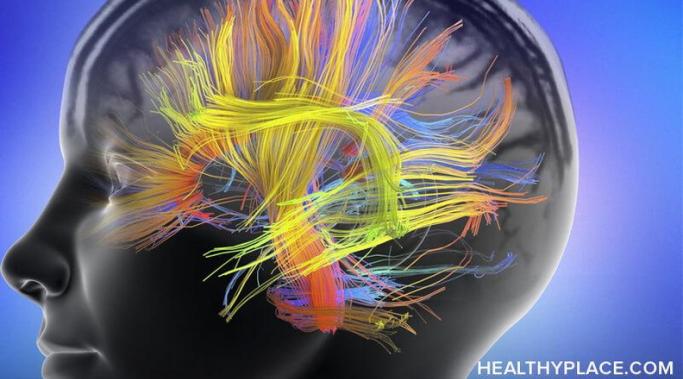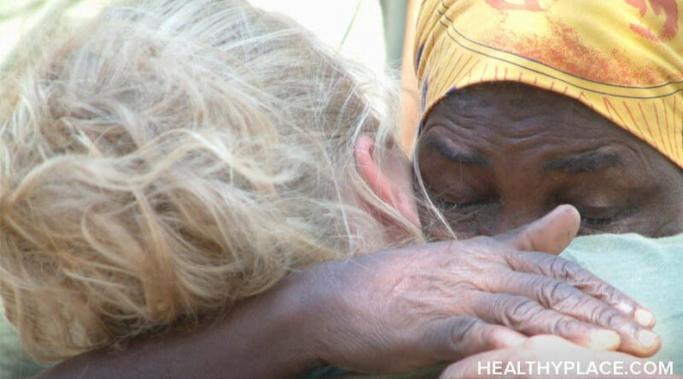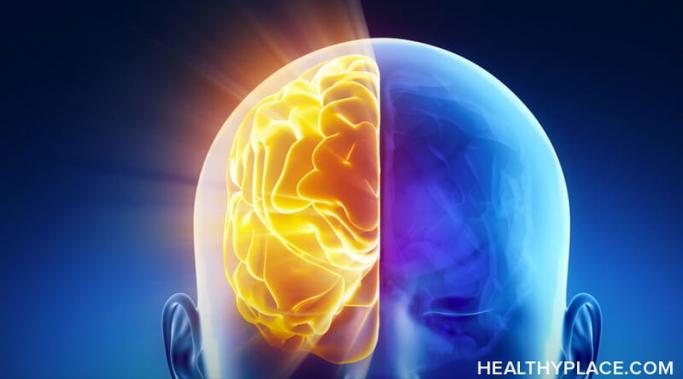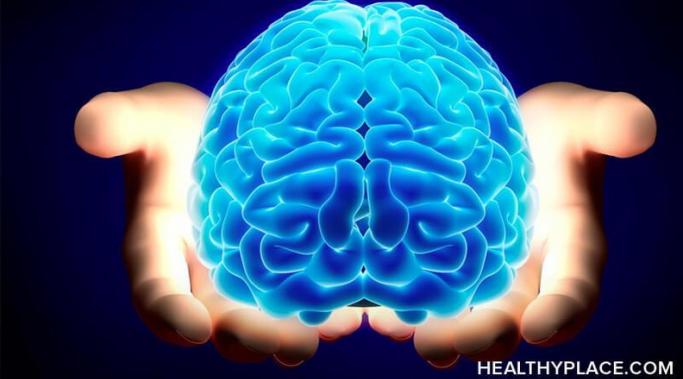In my previous post, I looked at the question of whether or not your therapist was doing "the correct thing" in treating your PTSD. I suggested that this is an ambiguous question, for what is correct from her or his point of view is usually related to the treatment model they are using, while for YOU it is not about that at all. So, we really have two questions to look at.
I suggested previously that assessing whether or not your therapist was doing the correct thing was basically beyond the capability of most psychotherapy clients, with the probable exception of a client who was themselves a psychotherapist, and who uses the same treatment model. Finally, I suggested that it was actually quite sufficient for you, as the client, to deal simply with YOUR part of this question. That question, as I have thought of it, forms the title of this post: Is your PTSD therapy giving you the results you want?
About PTSD
So many times I've heard civilians say, "You mean, major trauma that leads to PTSD happens outside of the military?" The answer, of course, is a big, resounding, YES! The problem is that we don't have enough sources demystifying trauma and PTSD so that it's easy to see where it comes from and how it happens (Finding Meaning in Trauma and PTSD).
One of the biggest problems in my PTSD experience and my recovery from PTSD was how fragmented I was and felt. Do you know what I mean?
It seemed like I had slivers of memories, a shattered sense of self and random sprinkles of what it meant to live a healthy, 'normal' life.
Healing PTSD, to me, became finding a way to pull everything back together. It meant re-integrating who I had been with who I had become, with who I wanted to be. (PTSD and Integration: The Path To Healing) Whew, that was a big job! And back then, I didn't have the benefit of Dr. Daniel Siegel's input - but you can!
The beginning of my PTSD recovery looked like this:
Force me to go to therapy for one hour, once a week.
I show up and expect the therapist to do all of the work.
For the rest of the week, I pretend there’s nothing else to do and just try to limp through the days coping with symptoms of PTSD.
Why did I pretend there was nothing else to do? Because if you’ve ever, for a second, struggled with the effects of trauma or PTSD, you know what it feels like to be sleep-deprived, depressed, emotionally volatile, powerless, hopeless and sometimes, just downright utterly despondent. In that state of mind, I often believed there was no way to save me. I was crazy and would remain so forever.
A reader recently asked me a very important question. Speaking of her therapist, she asks "How do I know that what he is doing therapeutically is the correct thing?" This is a surprisingly complex question. I will point out the major issues to address in coming up with an answer, then describe my own preferred way of dealing with this question.
However, there are two aspects to consider here - your therapist's viewpoint, and yours. It is quite possible for your therapist to do the "correct" thing, but not to get the results you want. Because each of these considerations deserve careful thought, I will address my reader's question in two posts. This first one will consider how to think about your therapist. We must begin by asking: What determines "correct" for your therapist?
Active trauma memory - a memory that gets triggered, is intrusive, and is invariably painful - will disturb your state of mind, your focus, your ability to be productive, and any sense of hope for the future you may still possess. Put simply, it alters your present perspective on life, and never for the better. Pushing back against such an assault well may seem impossible, but that does not have to be the case. One management tactic of proven value that almost anyone can use is the practice of cultivating a sense of gratitude.
We know that trauma affects the brain. Science has proven that. Yet, have you ever had someone say to you any of these things:
"PTSD isn't real; it's all in your head."
"Just get over it already!"
"Only veterans get PTSD."
I speak all over the country about PTSD symptoms. Mostly, these audiences are comprised of civilians: survivors, caregivers and healing professionals. Sometimes, too, there are people who have no PTSD connection but have been invited to hear the presentation. Inevitably, whether it's before the presentation has started or after it has finished, someone addresses me to say some variation of one of those three things (on a really awful day, all three!).
Why don't people get what it means to struggle with PTSD?
Living in the chaos of PTSD symptoms and post-trauma haze can make you very self-centered. Know how I know that? I used to be like that! It's hard to cope on the inside and still be sensitive to others on the outside. Heck, it's tough to be miserable and do anything that would make someone else happy.
One U.S. Marine + One Guitar = Big Impact
When was the last time you did something nice for someone else? Last week, on Changing Direction, I interviewed U.S. Marine, Markus Fox, about how his guitar and music helped his platoon during a particularly difficult night in Iraq. They had lost the first two casualties since their deployment and the platoon was very upset. Markus took out his guitar, sat on the back step of a truck and invited the other soldiers to pull up their stools while he played a tribute to their fallen brothers. The results of this simple, selfless act during a time of trauma were enormous.
Still, there are a couple of problems with the PTSD self-centered lifestyle. Let's take a look...
Radical acceptance means complete and total acceptance of something, accepting reality, and is a key component of Dialetical Behavioral Therapy.
Yesterday, I listened to an interview with Marsha Linehan, the creator of Dialectical Behavioral Therapy (DBT). If you aren't hip to the help DBT can offer, you might find some new ideas here.
I'm here to tell you that trauma affects your brain. Even so, have you ever had someone say to you any of these things:
"PTSD isn't real; it's all in your head"
"Just get over it already!"
"Only veterans get PTSD"?
I speak all over the country about PTSD symptoms. Mostly, these audiences are comprised of civilians: survivors, caregivers and healing professionals. Sometimes, too, there are people who have no PTSD connection but have been invited to hear the presentation. Inevitably, whether it's before the presentation has started or after it has finished someone addresses me to say some variation of one of those three things (on a really awful day, all three!).
Why don't people "get" what it means to struggle with PTSD? Why can't they understand that trauma affects the brain as well as the mind?









